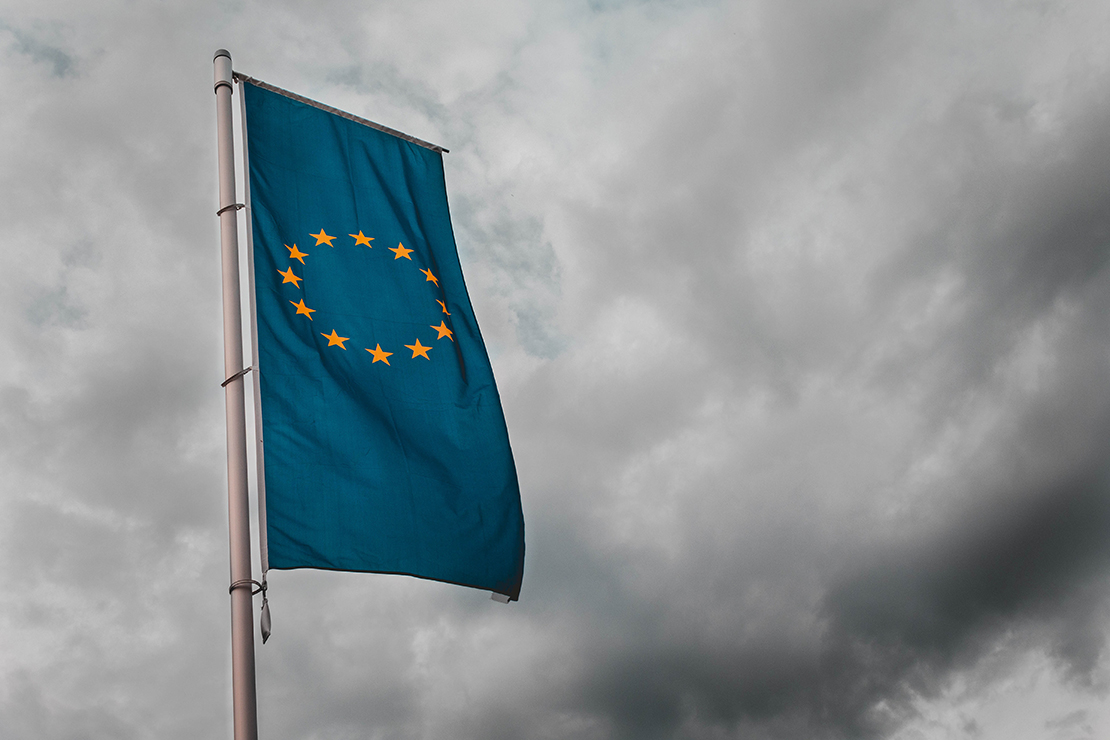Authors

Private: Dr. Nicasia Picciano
peace- and state-building, ethnic conflict, EU enlargement and corruption in Kosovo and the Western BalkansThe Western Balkans is part of the same Europe as the EU. This won’t be completed until they are all in, said European Commissioner for Enlargement and Neighbourhood Policy, Oliver Várhelyi. By presenting the EU’s enlargement package 2021, he clarified that a greater focus would be on fundamental reforms, especially on the rule of law, with 5% more funding disbursed via the Pre-Accession Assistance (IPA) III scheme, tweeted Várhelyi.
For Kosovo there is an opportunity to advance in the fight against corruption and organized crime, while enhancing economic development, the EU Commissioner reported. Also, he reconfirmed that the European Commission (EC) stands by its July 2018 assessment about the country fulfilling all visa liberalization benchmarks.
On the drafting of the report the President of Kosovo Vjosa Osmani asked for clarifications about the non-consultation of the Presidency in the pre-drafting phase, as for other institutions including civil society organizations (CSOs).[1]
Osmani also opposed the part of the EC’s report stating that the vetting is a source of serious concern, namely the full and one-time evaluation of all prosecutors and judges. She openly disagreed with the statement about this being worrying. Rather, she argued that this procedure is necessary and the only way to achieve all requirements asked for by the EU.[2]
On the EU-facilitated dialogue Várhelyi reminded that a normalization of relations between Serbia and Kosovo remains central to the EU’s future and stability in the region. Therefore, both parties need to engage constructively. Unilateral and uncoordinated actions should be avoided. This is crucial for both countries’ advancement on their respective European paths, as reconfirmed by the EC’s 2021 report.[3] Yet, the situation in the north remains challenging, particularly for corruption, organized crime, and freedom of expression.
Meanwhile, Kosovo Prime Minister Albin Kurti publicly emphasized that the path to integration into the EU requires large reforms and achievements. Yet, his government has proved to be on the right track in the past months. Especially, he recalled the establishment of inter-institutional coordination structures for the European integration process. Also, he reminded about the revision and approval of the National Plan for the Implementation of the Stabilization and Association Agreement (SAA) 2021-2025. And finally, he talked about the reviewing and adoption of the Action Plan for the European Reform Agenda (ERA II).[4]
While praising the bilateral cooperation and the contribution of the EU to Kosovo’s European perspective, Glauk Konjufca, the Speaker of the Assembly of Kosovo, also stressed the significant progress in the implementation of reforms.[5]
Simultaneously, however, the Head of the EU Office in Kosovo Tomas Szunyog’s speech at a press conference swept away all initial local optimism, with the country in need of achieving tangible results in the field of rule of law, the fight against corruption, and administrative reforms. Besides that, he reminded that limited progress has been made in the judicial system.
Szunyog also warned that all previous agreements reached in Brussels should be implemented, including the one on the formation of the Association on Serbian Municipalities (ASM).[6]
Political and economic criteria, European standards, and good neighbourly relations: Setbacks outperform Progress
Thus, despite governmental promises, the EC’s country report on Kosovo, covering the period June 2020 – June 2021, displays a gloomy scenario. Limited EU-related reforms were undertaken, following the political instability of the February 2021 elections marking Vetevendosje’s landslide victory. Yet, the adoption of a 2nd phase of the European Reform Agenda (ERA 2) and its Action Plan, in October of this year, confirms the renewed commitment towards the necessary reforms.
As for the political criteria some level of preparation was recorded in the sector of Public Administration Reform (PAR), in the fight against corruption and freedom of expression.
As for the PAR progress was halted by the frequent government changes. Particularly, the Law on Public Officials, entered into force in June 2021, was not fully implemented especially with regards to recruitments. Overall undue political influence over appointments and dismissals of senior public functionaries and civil servants has been observed.
With a look at the fight against corruption, investigation and prosecution of high-level cases was limited. Of concern is the low implementation of the legal framework on fiscal confiscation, with the value of finally confiscated assets being minimal. Overall corruption is widespread and remains a seriously worrying issue. Generally, political will to effectively address systemic corruption’s risks is lacking.
As for the freedom of expression public smear campaigns, threats, and physical attacks on journalists are common. Also, the lack of financial self-sustainability, further exacerbated by the COVID-19 pandemic, leaves the media vulnerable to political and business interests. And the public broadcaster remains open to political influence and a sustainable solution for its own funding still needs to be looked for.
Limited progress was recorded in the fight against organized crime with the powerful tools as per the Criminal Code and the Law on extended powers of confiscation not fully used by both police and the prosecution yet. Additionally, the political interference in the operational activities of all enforcement bodies is still a common practice.
What’s more, the judicial system is at an early stage in developing a well-functioning structure, with the overall administration of justice being slow, inefficient, and vulnerable to undue political influence. Despite this, the new government has been considering several options for a vetting process of both the judiciary and the prosecution.
As for the fundamental rights, whether the legal framework is in line with the European standards, its implementation remains weak. Also, the authorities still depend on donor support and guidance, and in need of assuming a greater ownership. Besides that, more needs to be done to guarantee the rights of persons belonging to minorities, particularly of Roma, Ashkali and displaced persons.
Progress was, however, registered in the fight against terrorism especially about the rehabilitation and reintegration of foreign terrorist fighters and their families. Also, continuous advancement was displayed in managing both regular migration and mixed migration flows.
As for the economic criteria Kosovo has minimally advanced, while being at an early stage of developing a functioning market economy and coping with a competitive pressure and the market forces in the EU. As for the former, especially the private sector’s development remains constrained by a widespread informal economy, a slow and inefficient judiciary, a high prevalence of corruption and an overall weak rule of law.
Little progress was achieved on improving the quality of education and addressing skill gaps in the labour market. Yet, some advancement was recorded in upgrading road infrastructure and increasing investment in renewables. However, the coal-based, outdated, and unreliable energy supply remains a concern country-wide. Meanwhile, the digitization has been reformed.
But structural changes are emerging only slowly with the economy highly reliant on small firms unable to compete internationally, and with exports dominated by a few products, such as base metals.
As for the good neighbourly relations and regional cooperation, Kosovo continued to participate in most regional fora. It maintained overall good relations with Albania, Montenegro, and North Macedonia. Yet, there has been no change in its formal relations with Bosnia and Herzegovina still not recognizing the country, with the two of them maintaining a strict visa regime.
With a look at the European standards some progress was made in the areas of public procurement, statistics, and financial control. And for cluster 2 on the internal market, some level of preparation has been met for the free movement of goods, capital, company law and intellectual property. But there is still a moderate advancement on the movement of workers, services, the right of establishment, as well as on financial services. Also, an early stage of planning on competition, consumer policy and health protection are under way.
All in all, the new country’s
report 2021 reveals more setbacks than progresses. One thing is certain,
though: there is still a lot to. After 5 years since the entry into force of
the SAA and 4 years following the adoption of ERA I, recently succeeded (October
2021) by ERA II, Kosovo’s two key compasses towards a possible EU’s accession,
it is the time for showing a real commitment. Shortly, Kosovo outside the EU is
not an option.
[1]President Osmani received the European Commission report on Kosovo from Ambassador Szunyog. Available at: https://president-ksgov.net/en/news/president-osmani-received-the-european-commission-report-on-kosovo-from-ambassador-szunyog
[2]Osmani comments on the EC report on Ksoovo, opposes the part on Vetting, 20 October 2021. Available at: https://www.txtreport.com/news/2021-10-20-osmani-comments-on-the-ec-report-on-kosovo–opposes-the-part-on-vetting.rkCcKhaBt.html
[3]European Commission. Commission Staff Working Document Kosovo* 2021 Report, 10 October 2021. Available at: https://ec.europa.eu/neighbourhood-enlargement/kosovo-report-2021_en
[4]The Prime Minister Office. Prime Minister Kurti received the European Commission Report on Kosovo from Ambassador Szunyong, 19 October 2021. Available at: https://kryeministri.rks-gov.net/en/prime-minister-kurti-received-the-european-commission-report-on-kosovo-from-ambassador-szunyog/
[5]Szunyong hands over EC report, EU enlargement package to Konjufca, 21 October 2021. Available at:https://en.rtv21.tv/szunyog-submits-to-ke-konjufces-the-report-you-have-and-the-expansion-package-to-be/
[6]Szunyog submits Kurti Progress Report: There is no shortcut to the EU, Daily News, 19 October 2021. Available at: https://www.txtreport.com/news/2021-10-19-szunyog-submits-kurti-progress-report–there-is-no-shortcut-to-the-eu.H1Q19t2rY.html
Scaling up progress and setbacks: Kosovo’s new country report is less promising than ever

 Download PDF
08/12/2021
Download PDF
08/12/2021Share article
Related Espresso Insights
March 4, 2024
Espresso.Insights
Passport Hangover: What’s next after Spain’s Kosovo breakthrough?

January 16, 2023
Espresso.Insights
Recognized but not supported: Hungary's stance on Kosovo's EU bid

Latest Publications
April 24, 2024
Policy Analysis
Tracking Kosovo's Commitment: Monitoring Adherence to the Venice Commission Rule of Law Checklist in ...
April 8, 2024
Policy Analysis
Reflecting on the Third Year of Kurti II: Setbacks and Achievements in Rule of Law, Public Administr ...
March 22, 2024
Policy Analysis



